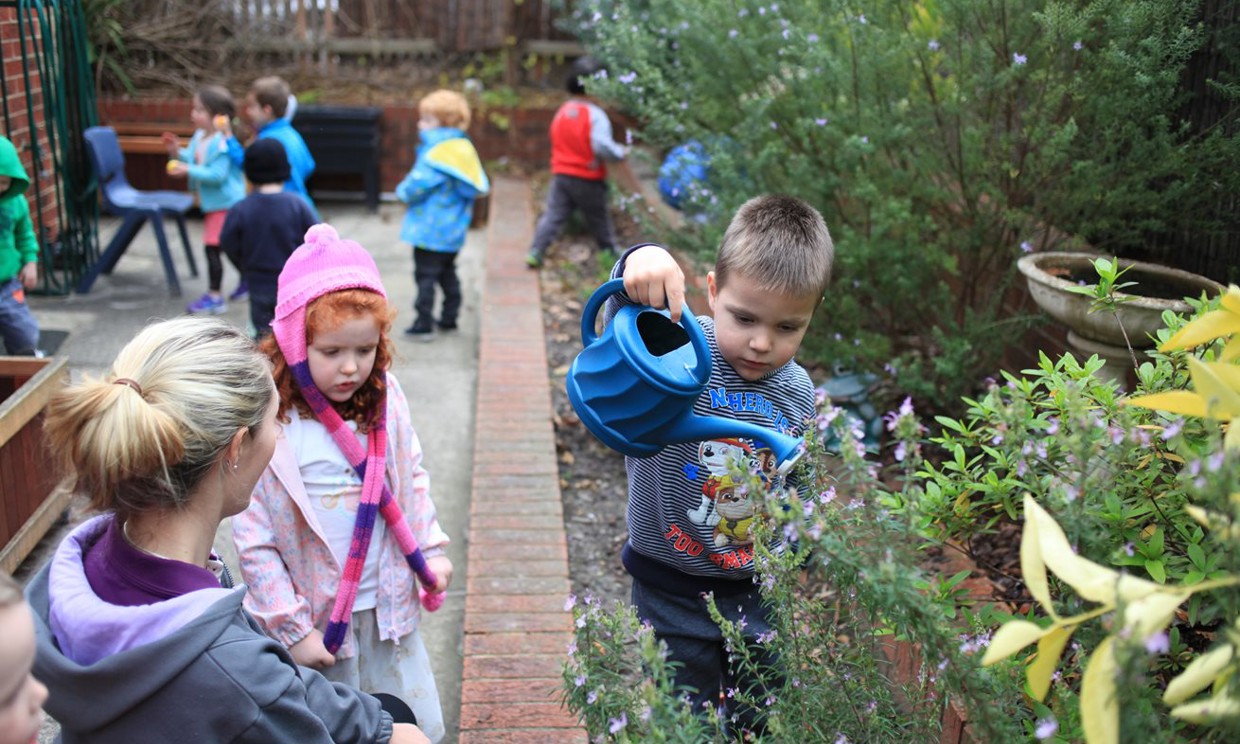Without question, children are increasingly spending more time in front of screens but it is play and quality relationships that Kindergarten-aged children really need from their parents ahead of starting school.
Australian children aged between four and five years are spending around 2.2 hours each weekday and 2.5 hours on weekends watching screens according to the Longitudinal Study released in 2016 by the Australian Institute of Family Studies.
Goodstart’s early childhood educator Lisa Palethorpe said while consensus was yet to be reached about the value of digital technology in the early years, research is clear about benefits of play and secure relationships on a child’s brain development and school readiness.
“Four and five year old children have enormous capacity to be thoughtful and reflective and parents should ensure they are giving them enough time to play and to be in relationships with others,” Ms Palethorpe said.
She said the difficulty for some parents was giving children the time and space for rich, experience-based play.
“A child’s impulse for play is natural,” Ms Palethorpe said. “However, achieving rich, experience-based play is not as easy to accomplish as people think.”
When a child engages in rich, experienced-based play, they build and strengthen skills for life-long learning and life success – social skills, problem solving, self-confidence and flexibility.
“These are vital skills needed for school and life-long success. If you can develop a child’s love of learning in the early years, they are more likely to stay engaged during their schooling years.”
“Importantly we know that if a child starts school behind developmentally, they are likely to stay behind. So as parents and educators, we play a vital role in helping to ensure that children are provided with rich learning experiences in their early years that promotes their learning, development and wellbeing.”
Play time with your child is a chance to see the world through their eyes
There was no activity with more value and impact than play, and no investment paid greater dividends for children than time spent with their parents in play, she said.
One of the most important benefits of play is that it provides a different quality of interaction between parents and their children.
“When you play with your child, you can see the world through their eyes and gain more understanding of their abilities and needs,” she said.
“This opens the door for parents to help a child build new skills that are important for school, later learning and life, such as social skills.”
She said research shows that children’s brains develop best in an environment of emotional security.
“Another advantage of playing together is that it provides a great bonding opportunity between a parent and child,” she said.
“This undivided attention and interaction tells a child that they are important and valued.”
Ms Palethorpe recommended turning off the background TV when engaging in play.
“When the TV is on, parents tend to be more distracted and less attuned to their children and their needs, reducing the quality of the interaction,” she said.
“When parents are attentive, children are more likely to engage in high quality play and more focused play.”
Read about the importance of play with other children here.
What does play-based learning look like?
When you looked at how children learn, they learn best when something was meaningful to them, she said.
“Essentially, parents engaging in play with their children need to make sure it is above all else, enjoyable for them.
“At times play could be challenging or cause frustration but essentially enjoyment should be a central feature and is created by ensuring the activity has meaning and stems from the interests of the child.”
She said parents engaging in play-based activities with their children involved physical, verbal or mental engagement of a child with materials, people, ideas and environment.
For further tips around play-based learning, read Ms Palethorpe’s article about providing children access to opened-ended items for play and how to stimulate a child’s development through conversation (sustained, shared thinking).
Read more about Goodstart’s approach to play-based learning here.
Ms Palethorpe is national manager of Early Learning Capability at Goodstart. The Early Learning Capability Team develops high quality, evidence-based professional learning materials to improve early childhood practice and knowledge of children’s development, learning and wellbeing across Goodstart’s network of 645 centres.


